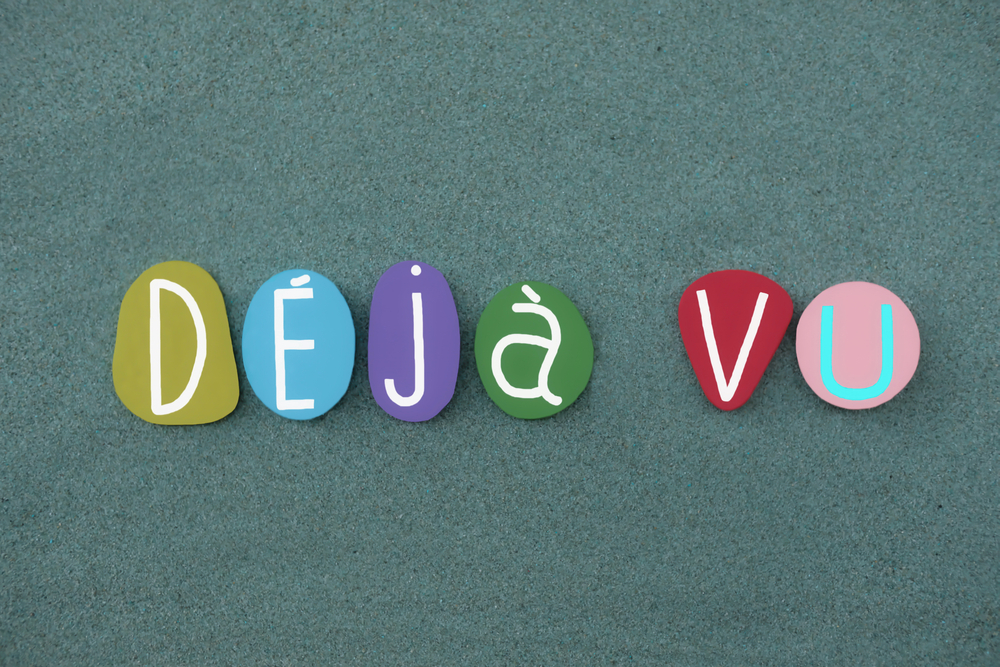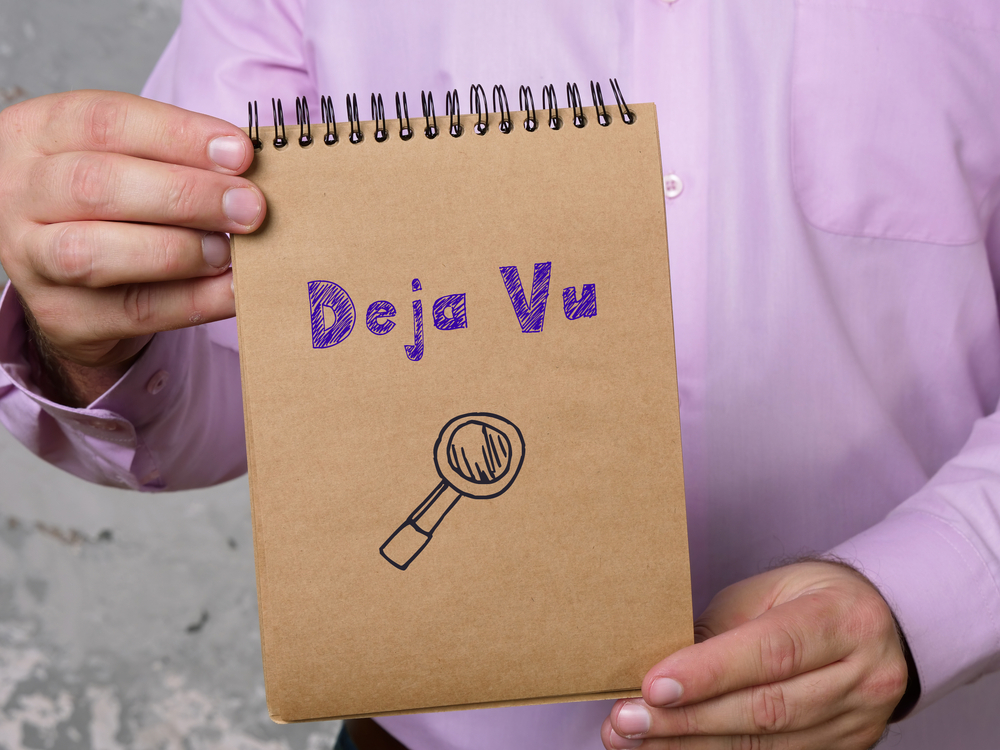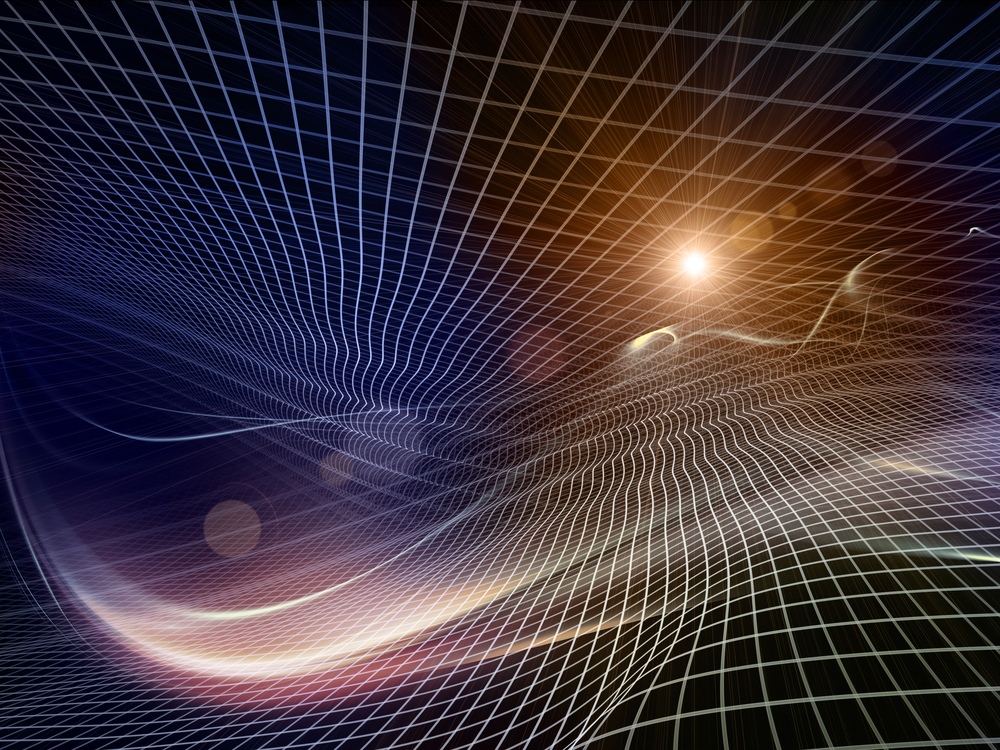Your cart is currently empty!
These 4 Explanations of DEJA VU Explain It Better Than SCIENCE

Imagine sitting with your friends on a sunny day, enjoying the peace, when suddenly you predict something odd—like a boy with a funny haircut walking by. Moments later, that exact person appears, leaving your friends bewildered. You can’t explain how you knew, and it leaves you with an eerie sense of familiarity, as if you’ve seen this moment before. This is déjà vu, a phenomenon that almost everyone experiences at some point in their life.
Déjà vu comes from the French phrase meaning “already seen.” It’s a fleeting sensation that makes an experience or moment feel oddly familiar as if you’ve lived it before. While the feeling only lasts for a few seconds, it can leave a lasting impression, prompting you to wonder how it’s possible. Despite science attempting to explain it, there are theories and mystical explanations that may offer a better understanding of this intriguing phenomenon.

Who Gets Déjà Vu?
Déjà vu is a universal experience that affects people of all backgrounds, but not everyone experiences it equally. Studies suggest that about two-thirds of the population will encounter this mysterious sensation at least once in their lives. Interestingly, gender seems to play no role in who experiences déjà vu, but age does. Younger individuals, particularly those between the ages of 15 and 25, report feeling déjà vu more frequently than older adults. As people age, the likelihood of having a déjà vu moment decreases significantly.
Moreover, those who are frequent travelers or avid movie-watchers seem to experience déjà vu more often. Some speculate that this could be because these individuals are exposed to more diverse stimuli, which can trigger the sensation of familiarity in new or repeated environments. So, whether you’re trekking through new cities or simply watching films that explore distant lands, you might find yourself caught in a moment where the lines between memory and reality blur, leaving you with that unmistakable sense of “I’ve been here before.”
Interestingly, research has also shown that people with more active imaginations or vivid dreamers tend to report more frequent episodes of déjà vu. This has led some to theorize that déjà vu may be connected to memory processing, where the brain temporarily confuses current events with stored dreams or past experiences. Regardless of the specific triggers, this fleeting moment of familiarity continues to fascinate scientists, spiritual seekers, and anyone who has ever felt like they’ve lived a moment before.
Theory 1: Mercury – The Bringer of Dreams
In ancient Roman mythology, Mercury was the swift-footed messenger of the gods, known for his ability to deliver messages across realms. But his role extended beyond just carrying messages between deities—he was also known as the Bringer of Dreams. According to myth, Mercury had the power to enter the dreams of both gods and humans, often relaying important insights, premonitions, or even glimpses of the future. Could it be that déjà vu is a subtle reminder of Mercury’s influence on our dreams, a hint of a message that was once delivered to us while we slept?
When you experience déjà vu, it may be that you are unconsciously recalling a fragment of a dream in which Mercury, or the dream messenger, offered a glimpse of something to come. However, because the memory of the dream is vague and quickly fades upon waking, the sensation of déjà vu feels like a familiar event without a clear explanation. Perhaps when you suddenly feel that you’ve been in a place or situation before, it’s Mercury’s way of reminding you of a dream you’ve long forgotten—a dream that hinted at your future.
In this way, the myth of Mercury provides an intriguing explanation for déjà vu. Rather than a simple brain malfunction, it could be that the sensation of familiarity is rooted in the mystical realm of dreams and prophecy. Mercury’s messages may be subtle and easy to dismiss, but when the predicted event unfolds in reality, the fleeting recognition we experience is his mark.

Theory 2: Reincarnation
Another fascinating explanation for déjà vu comes from the concept of reincarnation. In this theory, déjà vu is not simply a random experience but a brief glimpse into a previous life. The idea is that your soul, having lived many lives before, carries fragments of memories from those past experiences. When you encounter a moment, place, or situation that feels eerily familiar, it could be a subtle memory resurfacing from a life you once lived.
Take the case of Derrick, the young boy who accurately described the layout of a medieval castle before ever setting foot inside. According to the theory of reincarnation, Derrick may have visited or even lived in that castle during a previous lifetime. His familiarity with the rooms and their details wasn’t a coincidence—it was his soul recalling a place it had once known.
Reincarnation offers a deeper, spiritual perspective on déjà vu. It suggests that each time we are reborn, we carry pieces of our past lives with us, often buried deep in our subconscious. These fragments occasionally resurface, creating the sensation that we are reliving a moment we’ve experienced before. Déjà vu could serve as a subtle reminder of the continuity of the soul’s journey, giving us an opportunity to reconnect with our past selves, even if only for a fleeting moment.
This explanation adds a mystical layer to déjà vu, suggesting that rather than just being a trick of the mind, it’s a chance to revisit moments from a former life, offering a brief but meaningful connection to our soul’s history.
Theory 3: Time-Space Continuum
The concept of the time-space continuum offers a more scientific yet still mystical explanation for déjà vu. According to this theory, our existence runs parallel to other dimensions and realities that are typically beyond our conscious awareness. Time and space, as we perceive them, are linear, progressing forward in a straight line. However, in the vast universe, there are lateral realms where time and space function differently, and sometimes, under certain conditions, we can slip into these alternate dimensions.
When you experience déjà vu, it might be that your consciousness has momentarily shifted into a parallel reality—a realm where the event or situation you are currently experiencing has already taken place. This shift gives you the eerie sensation that you’ve already lived through this moment. In essence, you’ve temporarily crossed over into a different timeline, one that mirrors your current experience but exists in another dimension.
This theory can explain why déjà vu feels like a brief out-of-body experience. You may feel a sense of recognition or familiarity, even though you know you’ve never encountered the person, place, or event before. The time-space continuum theory suggests that the boundaries between these dimensions are not as solid as we might think. Occasionally, they overlap, allowing us a glimpse into an alternate reality where the event we are experiencing has already occurred.
While this explanation ventures into the realm of science fiction, it offers a captivating way to view déjà vu. It suggests that our reality is just one of many possible versions of existence and that déjà vu is a momentary slip between these parallel dimensions, giving us a unique and fleeting experience of time and space.
Theory 4: The Big Bang and Multiple Creations
The Big Bang theory, which explains the creation of the universe, serves as the foundation for this intriguing explanation of déjà vu. According to this idea, the universe wasn’t just created once—there have been multiple Big Bangs, where the universe is continuously created and recreated, much like a computer refreshing a webpage. Each “blink” or recreation subtly shifts reality, and in this constant cycle of creation, individuals may sometimes experience déjà vu as a byproduct of these cosmic resets.
When the universe “refreshes” itself, certain moments from the past may resurface briefly, causing individuals to feel as though they’ve been thrust into a familiar scene or memory from another version of reality. Just as a computer screen blinks during a refresh, these moments of déjà vu could be the result of the universe glitching or realigning itself, thrusting you into an experience that has already occurred in a previous cycle.
This theory, though abstract, taps into the idea of a constantly shifting universe, where time isn’t fixed and linear but subject to cosmic resets and fluctuations. The sensation of déjà vu might be your brain briefly syncing with an earlier version of reality, creating a momentary overlap between past and present. As the universe realigns, this feeling quickly fades, but it leaves you with that uncanny sense of having lived the moment before.
While the multiple Big Bangs theory might sound like science fiction, it offers a cosmological explanation for why déjà vu occurs. In a universe that is constantly recreating itself, moments from previous cycles may occasionally bleed into the present, giving you the sensation of reliving something from a previous iteration of reality.
What Do You Believe?
Déjà vu is a phenomenon that seems to blur the line between reality and fantasy. Whether you believe it’s the result of Mercury delivering forgotten messages in your dreams, a glimpse into a previous life through reincarnation, a slip in the time-space continuum, or a cosmic “refresh” from multiple Big Bangs, there’s no shortage of fascinating explanations. Each theory offers a unique way to understand why these fleeting moments of familiarity feel so profound.
While science has attempted to offer its own explanations for déjà vu, these alternative ideas present compelling possibilities that go beyond the purely logical. There’s so much we still don’t know about the universe, our souls, and the nature of time. Each déjà vu experience could be a tiny window into something far bigger than we can comprehend—perhaps even a reminder that reality itself is more complex and layered than we perceive in our day-to-day lives. It may be that déjà vu is our subconscious mind catching a glimpse of a larger, interconnected existence.
Ultimately, the mystery of déjà vu invites us to explore not only the mechanics of our minds but also the nature of existence itself. Are we tapping into forgotten dreams, past lives, or alternate realities? Or is it simply a cosmic glitch, a brief overlap of time and space? The next time you feel that uncanny sense of familiarity, consider it an invitation to reflect on the deeper mysteries of life. One thing’s for sure—it’s more than just a fleeting feeling.
